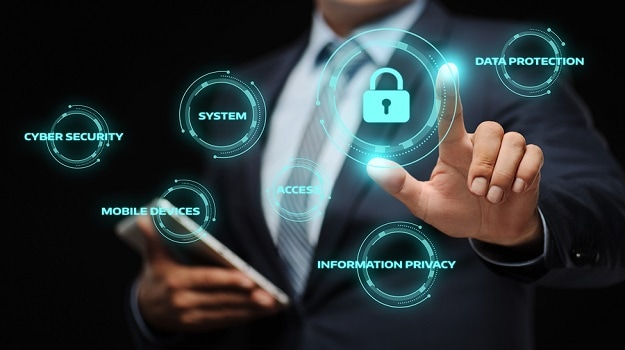Are you wondering if you should implement stronger cybersecurity measures to protect your remote business against threats? If you’re already looking for solutions, you’re on the right track.
Cybersecurity isn’t something you can ignore without consequence. According to cybersecurity stats published by Box, data breaches in 2021 cost 17% more than the previous year, and were the highest of all in the last 17 years.
If your business experiences a data breach, you can expect hefty fines and possible lawsuits, not to mention the cost to get back up and running might be high. In addition to financial consequences, your brand will likely suffer in the form of lost trust and a tarnished reputation.
Although you can’t prevent every incident, there are steps you can take to prevent some and mitigate the damage from others.
What are the top cybersecurity threats facing remote businesses?
Remote businesses are great – you don’t have a high overhead like traditional businesses – but you do have to be concerned about cybersecurity. In fact, the risk of an attack is greater when your business operates remotely.
The most common threats include:
- Zero-day attacks
- Malware
- Spyware
- Viruses
- Trojans
- Worms
- Phishing scams
- Bricking
- Ransomware
Some of these threats evolve quickly into multi-stage attacks, and can unfortunately be executed much easier against a remote business due to human error and negligence.
Remote workers are largely outside of your control
Perhaps the biggest security threat to your remote business is that you can’t control a remote worker’s laptop. At least, not completely. You can install antivirus software, block the installation of new applications, etc. However, there are some things you can’t control.
Here are some of the ways your remote employees’ devices can be a security risk:
- Using personal devices. You can provide a company laptop, but there’s no guarantee your remote employees won’t use their personal device(s) for work.
Worse, you can’t guarantee they won’t let other people use their personal laptop. Statistics published by Security Magazine show that 30% of remote workers let other people use their work device. That’s extremely risky since work devices contain your company’s sensitive data, including stored passwords to company accounts.
Other people can not only access your company’s network and files, but their negligence might cause a cybersecurity incident.
- Logging onto unsecure public Wi-Fi. Remote workers love working from coffee shops and restaurants. However, the Wi-Fi at these places is usually unsecure. Browser sessions can be hijacked, and hackers can also spoof the original Wi-Fi network by setting up a fake network hoping people will join. If your workers join a fake network, the hacker can gain access to their entire device.
- Keystroke loggers. If your remote workers end up downloading a keystroke logger on accident, it will record everything they type. This includes your company account information like usernames, passwords, and even financial information if workers make purchases using your company’s bank account.
Although there are several big risks involved with remote workers, there are ways to mitigate the potential for problems.
- Use secure file storage. Always use a secure file storage platform, like Box, so that your employees can control access to files. For example, you can create a company policy that requires generating links that expire for certain types of documents. This way, if someone gets ahold of an old link, it won’t be valid.
- Create a strict security policy. Make sure you have strict rules that have serious consequences without exception. For instance, have a zero-tolerance rule for violating security policies. For example, make sharing passwords grounds for immediate termination.
If someone can’t access their account, it might be a real issue or it could be that you’re in the process of terminating that employee. You don’t want anyone to share their login credentials with someone who is about to get fired; they might use those credentials to get revenge.
- Communication. Most importantly, talk with your employees and make sure they understand the consequences of allowing other people to use their device. Most people are reasonable and will honor your request not to share their device if you can explain it in a way that makes sense to them.
These are just a few of the ways you can mitigate security risks in your remote business. Your best avenue will always be to contact a professional IT security team to get a custom plan tailored to your needs.
In a remote world, tight security comes first
Strong cybersecurity should always be a priority, but it’s absolutely critical when your business is remote. There are too many uncontrollable factors with a remote business, and you can’t afford to take any unnecessary risks.
